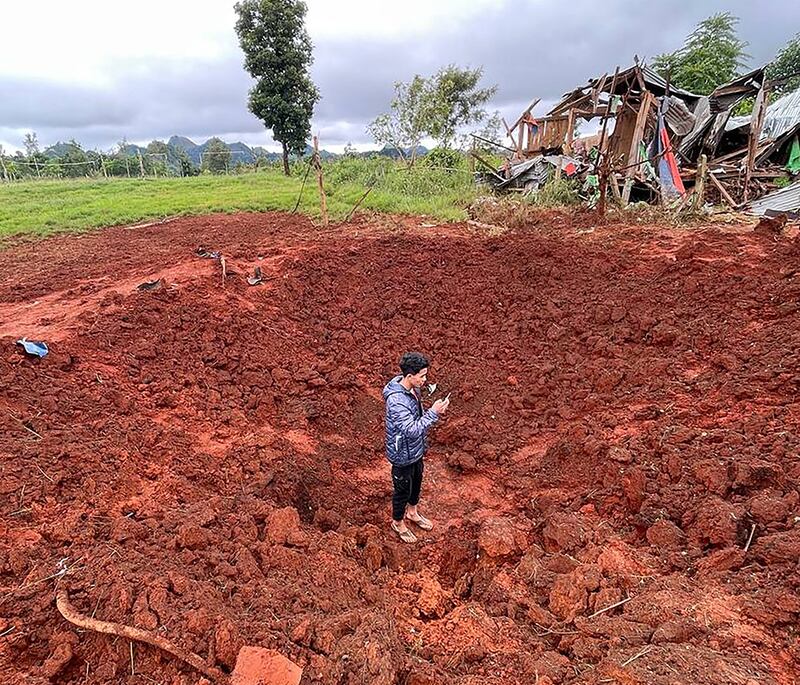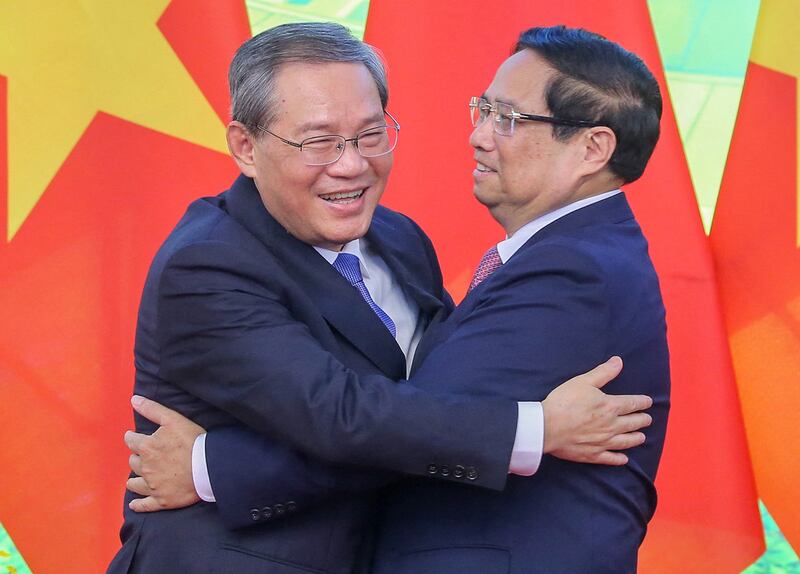There’s an old Republican saying: “A government strong enough to give you everything you want is strong enough to take away everything you have.”
Donald Trump, now set to become the 47th U.S. president in January, may have won over small-government voters with a good deal of flummery, but his vision is in fact draconian.
And that vision is likely to apply to foreign relations, showing allies like Ukraine and Taiwan that a United States strong enough to give other countries what they want is strong enough to take away all they need.
In Southeast Asia, the Philippines could become another casualty of Trumpian uninterest and selfishness.
As one of the least trade-dependent states in Asia, the Philippines might not be as panicked as others by Trump’s proposal of a blanket 10-20% tariff on imports from all countries.
However, as a U.S. treaty ally that depends on American support in its increasingly tense confrontation with Beijing over the South China Sea, Manila is all too aware that it may now have to go it alone.

Until January rolls around, one has to work on speculation about what Trump might do.
The conventional wisdom is that he will be a far more effective executive this time around, with more knowledge of how to navigate the corridors of power and unshackled from the “adults in the room” who tempered his basest instincts during his first term.
RELATED STORIES
China hawk to steer Trump’s national security
US election: Trump II to affect trade, security in SE Asia, experts say
Asian media focus on economic impact of Trump’s comeback
This should mean that he will get his way on economic promises, which reflect the fact that, as one veteran commentator put it this week, “Trump has no real economic agenda beyond clawing back jobs from Asia.”
Weakening economic growth
His proposed tariffs would certainly weaken economic growth in Southeast Asia, a region where the average trade-to-gross domestic product ratio is 90 percent, double the global average, according to the Hinrich Foundation.
Oxford Economics reckons “non-China Asia” could see exports fall by 3%.
On the other hand, there are people in the region who assume that because China would be Trump’s main target, the rest of Asia may benefit from Beijing’s troubles.
Even then, some countries, particularly Vietnam, have gotten away with allowing Chinese goods to be re-routed through its markets to be re-exported to the U.S. allowing Chinese exporters to bypass tariffs.
This is one reason for the massive trade surplus Vietnam has with the U.S. In 2019, Trump branded Vietnam the “worst abuser” of U.S. trade – at a time when its trade surplus with America stood at $55 million. It rose to $104 million last year.

The apparent benefit of hedging between the U.S. and China is that it allows neutral Southeast Asian states space to react to changing events elsewhere.
This is, presumably, one of those moments.
However, the logic behind hedging is that both the United States and China are equally vying for influence. What happens if one actively tries to retreat?
Perhaps the mistake was to think that the first Trump presidency, not the Biden presidency, was the aberration of American statecraft in the 21st century.
Groveling and flattery
Still, we cannot pretend that American foreign policy showed any great success under the Biden administration. It will be best remembered for failing to deter not only U.S. rivals – Russia, China and Iran – but also its friend in Israel.
In Southeast Asia, Washington’s no-policy-at-all stance on Myanmar has allowed the civil war to escalate and China to become the only foreign actor with any real influence.
It allowed relations with Malaysia to sour over Gaza and let Hanoi dictate the trajectory of U.S.-Vietnam relations.
The U.S. failed to even show up to regional events in the latter years of Biden, and the Indo-Pacific Economic Framework offered to compete with China was a dud.
Arguably, the biggest achievement was a more productive relationship with the Philippines and clarity over defense in the South China Sea – but that was only because Ferdinand Marcos Jr. won the Philippine presidency in 2022, reset relations and gifted Washington a diplomatic victory.
Yet no Southeast Asian leader will look forward to having to grovel before Trump, hoping to win his attention through flattery and backslapping.

Malaysia and Indonesia will now have to expect a response from Washington when they accuse it of collaborating with alleged genocide in the Middle East.
Vietnam can no longer expect there to be sensible people in the State Department who understand why it adopts “bamboo diplomacy” of balancing ties with the U.S., China and Russia.
Singapore, the trusted interlocutor between the East and the West, will have a much more difficult time explaining local sensitivities to Trump’s cabinet.
Failure to prepare
One shouldn’t underestimate the disruption that Trump might wreck on Southeast Asia. But that ought not excuse governments in the region for failing to prepare.
Asia might have been a little more resilient against a second Trump presidency if Japan and South Korea weren’t facing their own political crises; if Beijing ran its economy with more agility; if Thailand wasn’t in a constant state of political turmoil; or if ASEAN aspired to a little more than just reaching joint statements.
Indeed, things would be less dire if there was a little more of the selflessness and internationalism that others rightly condemn Trump for lacking.
Japan’s idea of an “Asian NATO” is sensible but won’t happen because of “dichotomies and divergence in country interests,” as the Philippines’ defense chief Gilberto Teodoro put it recently.

Why won’t Vietnam, for instance, call out Beijing when it threatens its neighbors' interests?
Most epochs are defined by at least one existential anxiety.
In Southeast Asia, at least since the early 2010s, it has been defined by two: the rise of China’s power and the decline of America’s. Trump’s victory will accelerate the latter but, possibly, may also impede the former.
If there is a saving grace for countries imperiled by the threat of invasion or attack by Beijing, it is that Trump’s proposed 60% tariffs on all Chinese imports could so weaken China’s economy that war becomes less likely.
David Hutt is a research fellow at the Central European Institute of Asian Studies (CEIAS) and the Southeast Asia Columnist at the Diplomat. He writes the Watching Europe In Southeast Asia newsletter. The views expressed here are his own and do not reflect the position of RFA.
